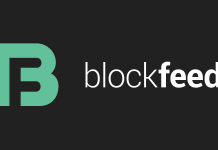The risks of ICOs for investors/contributors?
ICOs (initial coin offerings) are an unregulated way to gather capital to finance an idea. Given it is unregulated, there are risks. Entrepreneurs of all kinds are jumping on the ICO bandwagon, investors who are aware of ICO risks will most likely come out better than those who aren’t.
Most ICO white papers ask for a contribution rather than an investment, this terminology is used because investors have certain rights while contributors do not. Contributors provide a donation, i.e. they are not expecting anything back in return. I suspect this really is not internalised by the ICO contributors, given the millions exchanging hands in this process.
This list should is not a definite list of all the risks for ICO contributors.
Admittedly I pose more questions than I would like to in this article, this is because I am not a legal expert so these risks are not investment or legal advice.
Regulatory and Legal ICO risks
1. ICO Taxes Risk
- Is contributing in an ICO a taxable event in their tax domicile? What kind of tax event occurs when contributors divest from an ICO? Aware contributors will avoid trouble with the taxman.
- Should tax/vat be paid when receiving “dividends” from a crypto token?
- Can losses from ICO contribution be offset for tax purposes?
- What happens if contributors resident in a certain jurisdiction contribute, even though they were not allowed to invest according to?
- Are returns from ICOs eligible for investment start up tax incentive schemes?
2. ICO Risks related to Regulations.
- At some point, regulators will regulate ICOs, what happens to tokens which have already been bought from previous ICOs?
- Will the ICO token market tank (or rise) if ICOs will become regulated?
- Will contributors have a difficulty in selling their ICO tokens to others when the new regulations arrive?
3. ICO documents do they have a legal basis?
- Most ICOs have an equivalent of an “investment prospectus”; this takes the form of a website a white paper and a FAQ. Are these documents a contract between the token issues and the token holders?
- Which court would accept such documents as a basis for litigation?

- Under which jurisdiction would a particular ICO fall under, would it be under the country of incorporation of the holding company or where the contribution was made?
- The white paper and website can be modified on the fly; few implement any form of version control. This could lead to difficulty in any legal challenges.
- Can token holders challenge the white paper’s authors legally if the white paper and roadmap are not followed through? Through intentional negligence?
- Is a token a security by another name, and in that case what will be the responsibilities of the token issuers and the rights of the token holders?
4. Connection between the token holders and holding company
- Which are the laws that protect contributors in the jurisdiction where the “holding” company is incorporated?
- What happens if the company which issued the tokens is sold? Will the token holders have any rights under the new management?
- Can the board of directors overturn any statements present in the Website and white paper at the start, during or after the ICO?
- Can the token issuer issue more coins, even though they specified before the ICO they would not do this? If they do issue more coins can they legally challenged by the token holders?
5. Business ICO risks
- Intellectual property is not given the proper attention in white papers, the inventions and assets the token holders are paid for are often not legally protected. Through the necessary copyright applications.
- The competition in most white papers is characterised as a passive entity that will not react to competition. This is unrealistic, especially when comparing the white papers business model as much better than companies which have been around for decades. These companies have the systems to create counter strategies to any threat that emerges in their market.
- Many projects underestimate the Regulatory challenges and financial licenses needed in order to convert their business model into a viable legal business. The absence of these should be a red flag to the potential ICO contributor.
6. Investors/Contributor ICO Risks
- Lack of knowledge from an investor/contributor on how to value, buy and sell the ICO tokens is a key risk.
- Contributions which do not possess the business acumen regarding the business model, industry and team are likely to misjudge the true opportunities and risks of a particular ICO.
- FOMO: Fear of missing out. This is a feeling, which reduces the capacity of contributors to make rational investment decisions. The idea of digital scarcity and being left out can lead to erroneous investment decisions and losses.
- Contributing in one ICO, means these funds are not available for other ICOs or investments.
- Contributors are not aware that there are other regulated ways to invest in startups other than ICOs.
- Some Whale (big) “contributors” are using their technical prowess to get into the ICO before others. Simply to buy low and sell high without any view of the fundamentals of the ICO itself. This discourages a rational conversation about the viability of these ideas and the trustworthiness of the team behind them.
7. ICO Structure Risks
- ICOs include a founders reward in the ICO fund distribution table. This is a fee the contributors pay to the founder for the idea, the ICO and to launch and run the project. The founder’s reward is the no of tokens the founders will get from the ICO. The founders will not pay for these tokens. For Example, if an ICO is issuing 100 coins, there will be 90 coins available for contributors, the founders will get the remaining 10 coins for free. That is the founder’s reward. This is a dilution of the contribution, as a fee for the idea, and setup of the project.
- Obfuscation of how the founders will use ICO funds. For example, the founders’ reward can be mixed with other themes such as legal marketing and salaries which makes it harder to how much money will actually be working for the contributors and how much will go into the founders’ pockets.
- Undeclared Salaries, I have never seen a white paper which declared the salaries of the founders post the ICO. This could be a form of hidden second founders reward.
- Unpublished Financial documents. I have yet to see an ICO which commits to publishing their full audited financials post-ICO. This makes it extremely difficult for the token holders to analyse what is happening behind the scenes.
- Ongoing charges. ICOs could charge regular fees from the profits as ongoing fees out of profits. Without published accounts, it is very difficult for the token holders to challenged any figures.
- Bonus structure during the ICO is framed in such a way to increase FOMO and scarcity. For example; Those contributing, in the beginning, get a nice bonus of 30% while those contributing later will get a bonus of 20% or none. The initial contributors will have a vested interest in pumping the ICO. Getting in late on an ICO can be expensive, this structure is tilted in favour of early contributors, at the expense of the late ones. This reduces the opportunities for a rational discussion on the true fundamentals, risks and opportunities of an ICO.
- Unspecified entitlement or coins to angel contributors. If an undeclared number of coins or entitlements given to the first contributors is not specified clearly, contributors at later stages will be at a disadvantage.
- In theory, token issuers could use ICO funds from previous ICO waves themselves to buy their own token on the open market or during subsequent ICO waves, This drives up, price and creates interest in the ICO artificially.
- Fast fingers and fat fingers. Contributing in ICOs which are in high demand can result in fast frantic fingers copy and paying long ETH addresses. This occurs because when the network is overloaded transactions are not confirmed and some contributors tend to panic when this happens. Mistakes in this race can lead to fat finger mistakes such as extra zeros or wrong addresses.
- Token holders cannot vote out the management of the token issuer.
8. ICO Team Risks
- Teams without real world business experience organising an ICO makes me think of the dot com bubble. There is a difference between creating a crypto project and a real world business. ICO organisers with sky high crypto credentials are not necessarily the best C level personnel.
- Most white papers are based on the future possibilities and not on the past performance. The only connection with the past is the reputation and experience of the founders, industry statistics and the success of companies who happen to be in the same market. This makes it easier for the founders to make claims which cannot be backed by evidence.
- Anonymous Team members have the luxury to claim many achievements which are difficult to either verify or falsify.
- Minimum viable products are a precious and rare commodity in ICOs. It is rare to see screen shots or working software which is described in the white paper.
9. ICO Token Risks
- Tokens can be stolen.
- Tokens can be lost.
- Online and Offline Wallets can be hacked and the tokens inside stolen.
- The online wallet used can be hacked
- The smart contract on which the token is based (Ethereum, Waves) can face any number of challenges such as. Denial of service attacks, high fees, regulatory challenges.
- The tokens are not readily listed on exchanges, this reduces their liquidity.
10. Post ICO Risks
- Many Token issuers reduce their communication with the token holders after the ICO. Every Day that goes by without news, reduces the value of the issued tokens.
- Some ICOs are based on the decentralised governance model. I have yet to see multiple successful projects which are based on this governance model. Dash is a rare exception.
- The products being created become obsolete because other ICOs have come up with a better idea.
More on ICOS:
Comments:
- Did you experience any ICO surprises?
- Which ICOs had the best communication strategy?
- What are your rules of thumb when it comes to identifying ICO scams?











